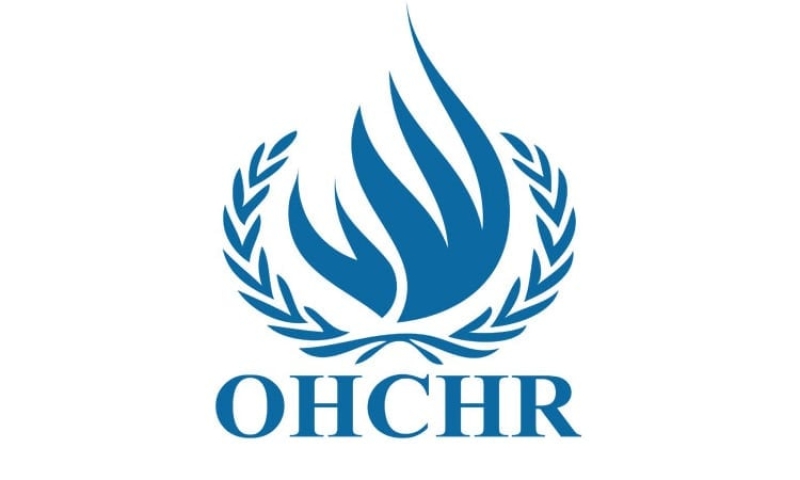- Bangladeshi Expats Cast 4.58 Lakh Postal Votes |
- IMF Forecasts Bangladesh GDP to Rebound to 4.7% in FY26 |
- Arab Allies Urge Restraint as Trump Presses Iran Talks |
- EC asks printing presses not to print election posters |
- Protect your votes, conspiracies still on: Tarique to voters |
Ousted Bangladesh Govt. Suppressed 2024 Rights Violations: UN

The United Nations Human Rights Office (OHCHR) has revealed that the ousted Bangladesh government actively sought to suppress the truth about human rights violations committed during the July-August 2024 Uprising, rather than taking meaningful steps toward accountability for those responsible. The OHCHR report, released last week, highlights how the former regime’s efforts to conceal the extent of abuses—including killings, torture, and arbitrary arrests—contrasted sharply with the widespread documentation of these violations by both local and international organizations.
The OHCHR report, titled Human Rights Violations and Abuses Related to the Protests of July and August 2024 in Bangladesh, covers a critical period from July 1 to August 5, 2024. During this time, the OHCHR found no genuine efforts by the authorities to investigate or hold accountable the security forces and Awami League supporters implicated in egregious abuses. “In numerous cases, police forces took victims’ bodies from hospitals, hid them from families, or even burned them to erase evidence of killings,” the report stated.
Furthermore, the report disclosed that police and the Rapid Action Battalion (RAB) were given unregistered allocations of ammunition, allowing them to carry out extensive shootings without triggering accountability in ammunition records. Despite the gravity of the situation, the OHCHR noted that former senior officials acknowledged no investigations into the security forces’ use of firearms or claims of torture and ill-treatment.
The OHCHR also noted that the authorities failed to follow up on victim complaints, citing a "pressing security situation." However, the report emphasized that a wealth of credible media reports and human rights organizations' findings should have compelled an official investigation. Instead, the government appeared to actively work to suppress the truth about the violations.
Among the most troubling aspects of the report was the involvement of Bangladesh’s Directorate General of Forces Intelligence (DGFI), National Security Intelligence (NSI), and the police’s Detective Branch, who were documented at hospitals where victims were treated. They confiscated medical records with critical evidence, while simultaneously intimidating victims, their families, lawyers, and journalists seeking accountability.
The report also highlighted instances of direct intimidation, with DGFI agents visiting families of victims and their lawyers in an effort to silence them. In one high-profile case, that of Abu Sayeed, hundreds of people were wrongfully accused or arrested, despite the widespread circulation of video evidence clearly showing police involvement in his death.
The former government’s narrative of the events surrounding the protests was further undermined by false statements made by the then-Prime Minister and senior officials. They accused opposition parties, including BNP and Jamaat-e-Islami, of orchestrating violence and killing protesters, despite clear evidence pointing to security forces as the perpetrators.
The report also referenced statements from the foreign ministry, which claimed to have communicated international concerns about human rights violations to the Prime Minister’s Office, Ministry of Home Affairs, and Ministry of Information. A fugitive former foreign minister allegedly briefed the Prime Minister about these concerns, while another senior official raised alarm about excessive force in early August.
The OHCHR also scrutinized the actions—or lack thereof—of the judicial system. Despite the Prime Minister’s announcement on July 17 of a judicial inquiry into the violence, this investigation was limited in scope, focusing almost exclusively on actions by protesters. The inquiry, which was assigned to three judges, neglected to address the broader and more severe abuses committed by security forces. Notably, the inquiry failed to produce any findings or reports before it ceased functioning on August 5.
The National Human Rights Commission (NHRC) also came under scrutiny for its failure to hold the government accountable. While the NHRC issued a vague statement on July 30 acknowledging the loss of life as “very unfortunate,” it did little to address the systemic violations or take any concrete actions to protect victims.
In conclusion, the OHCHR report paints a troubling picture of a government that not only failed to investigate and address serious human rights violations but actively worked to cover them up. This lack of accountability during one of the most tumultuous periods in Bangladesh’s recent history remains a significant concern for both domestic and international observers.

